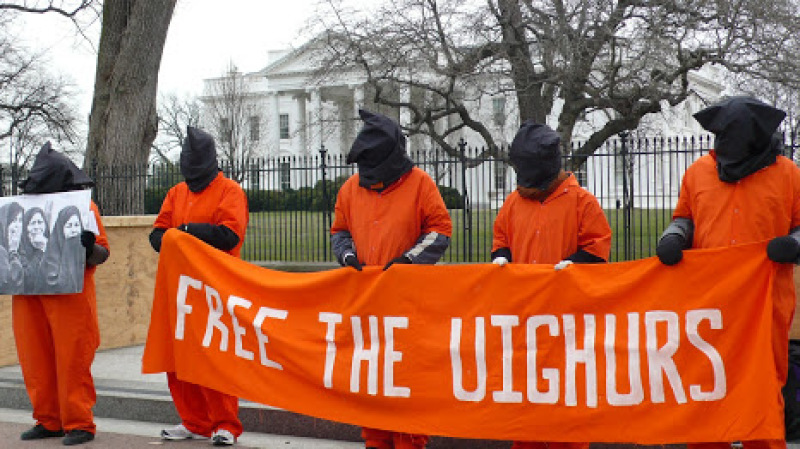
A 54-year old Uyghur textile trader and entrepreneur by the name of Kurbanjan Abdukerim died just four days after he was released from one of communist China's concentration camps.
According to Radio Free Asia, Abdukerim was released from one of the concentration facilities in northwest China's Xinjiang Uyghur Autonomous Region (XUAR), where he spent three years in detention.
The imprisoned Uyghur textile merchant was released from one of many concentration camps, where it is believed over 1.8 million Uyghurs and other Muslim minorities are being held since 2018.
The story of the imprisoned Uyghur textile merchant was told to Radio free Asia's Uyghur Service by his former neighbor, who went by the name of Zibibulla and was "speaking from exile in an undisclosed location in Europe." Zibibulla said that Abdukerim was released from the communist China concentration camp on February 23 this year, but died just four days later.
Zibibulla said that the imprisoned Uyghur textile merchant "died as soon as he got out."
Abdukerim was a "well-known businessman" who in 2018 was detained from his home in Azaq, Atush, the capital of the Kizilsu Kirghiz Autonomous Prefecture, the primary cotton and grape-growing region of southwestern XUAR. The county-level city has a population of about 270,000 people.
Before he was captured and placed in the Chinese concentration camp, the imprisoned Uyghur textile merchant was reportedly healthy and was about 220 pounds or 100 kg, as per Zibibulla. However, when he was released from the concentration camp in February, Abdukerim weighed only 117 pounds or 53 kg.
The imprisoned Uyghur textile merchant was the first to build a factory in Atush in the 1990s. According to Zibibulla, Abdukerim frequently sold Chinese fabrics in Kyrgyzstan and Saudi Arabia.
However, Zibibulla believes that he was captured by Chinese authorities for participating in the Muslim pilgrimage to Mecca in Saudi Arabia. Abdukerim left behind his wife and four children. The wake of the late Uyghur textile merchant was said to have been highly restricted by communist China authorities, who ensured that there were no more than 20 visitors during the event. He was also reportedly "buried under the supervision of local police."
The health condition of the imprisoned Uyghur textile merchant upon his release from the communist China concentration camp is unclear, as well as his cause of death, which may have been from a disease that he got from the concentration camp or due to malnutrition.
Communist China's concentration camps are often reported to have dire conditions and unsanitary facilities. According to The Organization for World Peace, the Chinese Communist Party (CCP) has been using these concentration camps for venues to "systemically oppress" Uyghurs and other Muslim minorities, subjecting them to human rights violations such as "torture, forced labour, and religious 're-education.'"
The imprisoned Uyghur textile merchant is just one of the millions who have fallen victim to communist China's unrelenting human rights violations.


























